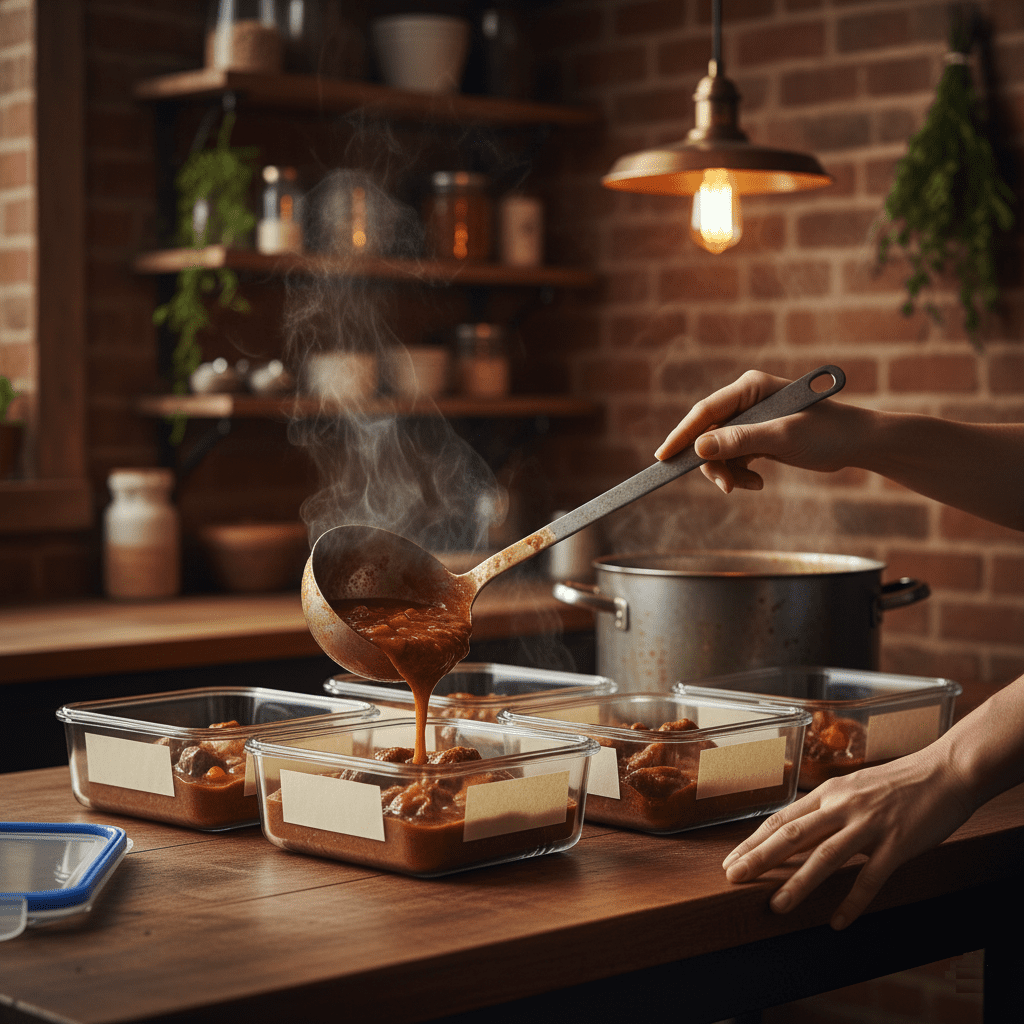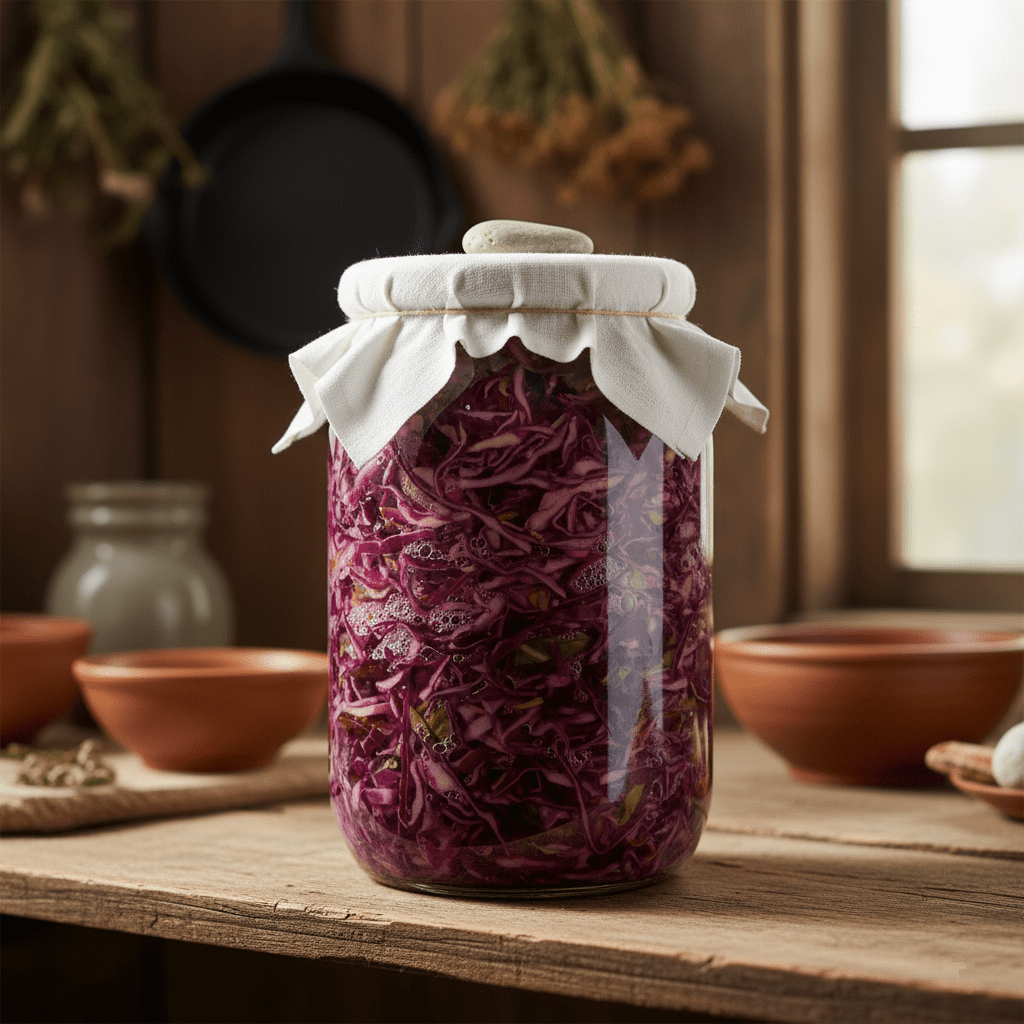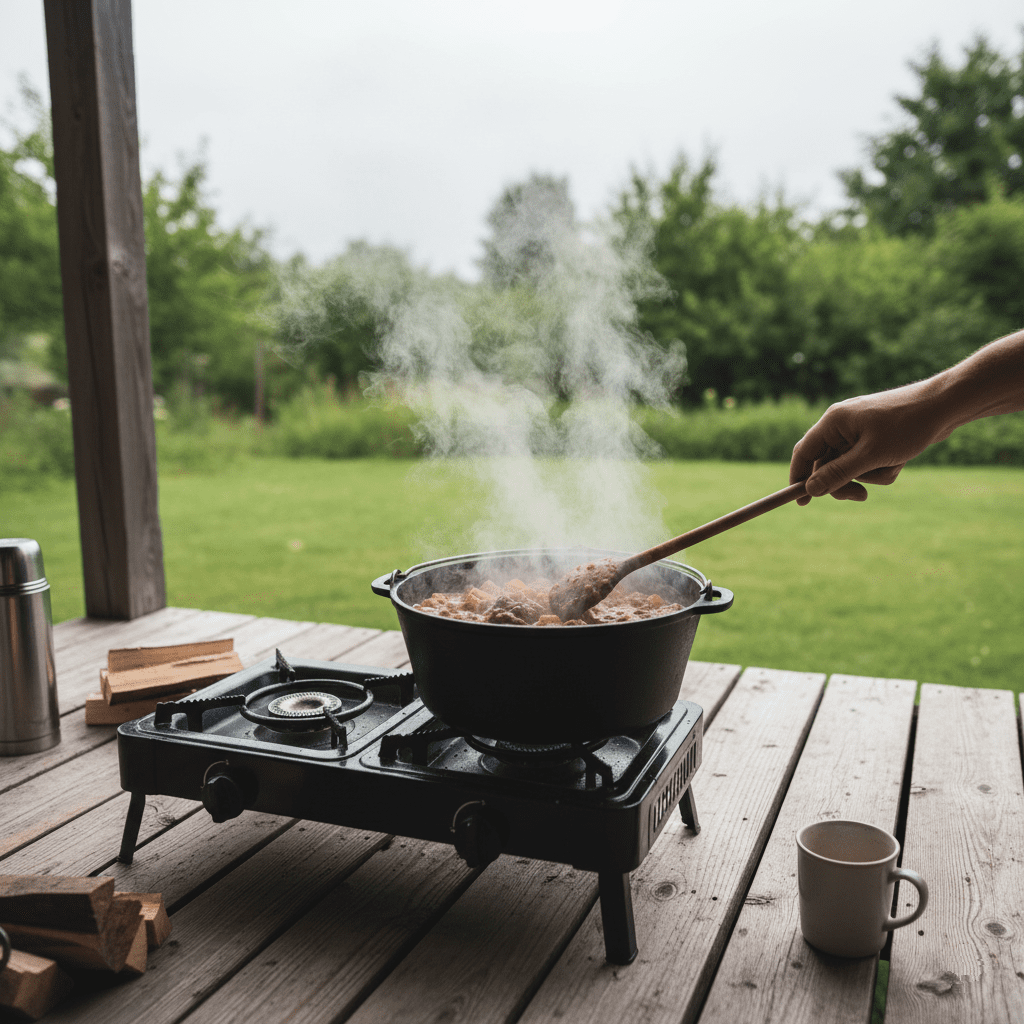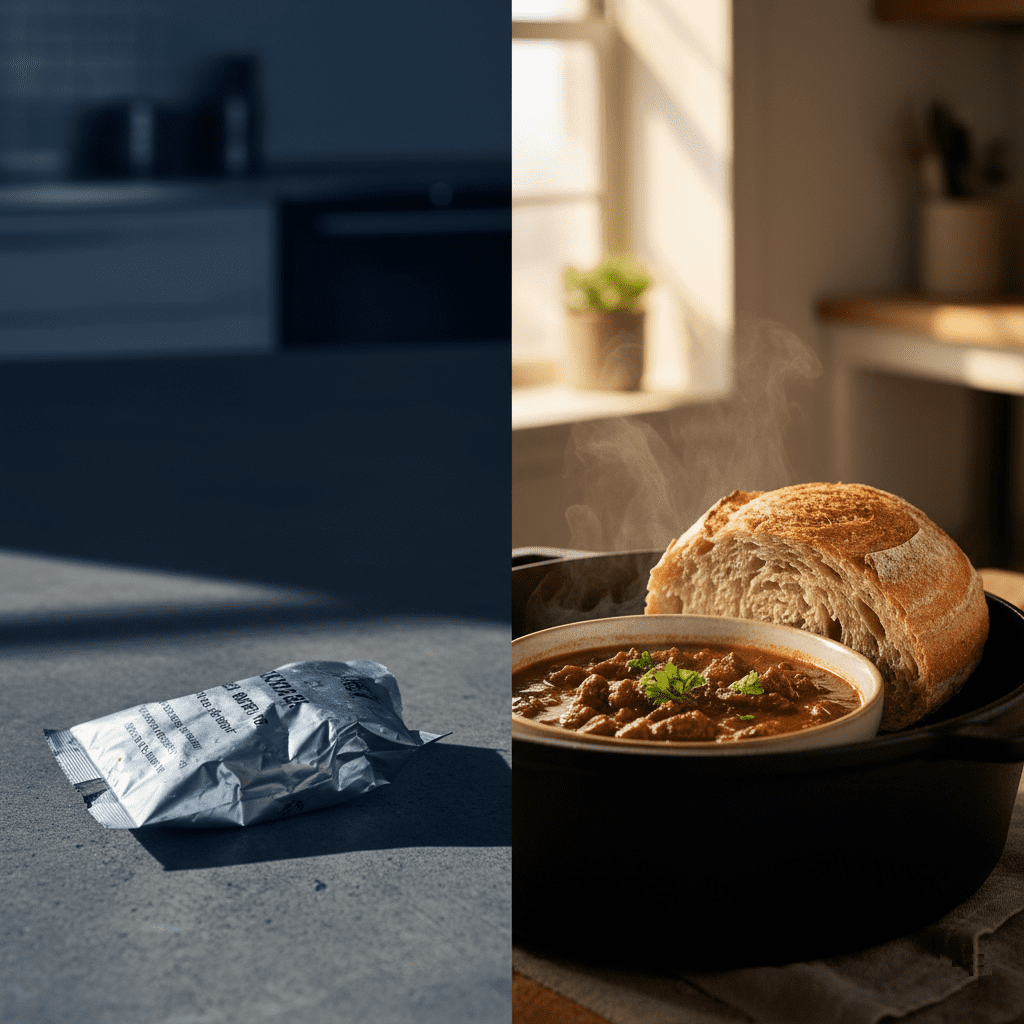“A citizen who cannot feed themselves without corporate permission is not prepared—they are merely pacified. Real readiness smells like garlic, not plastic pouches.”
Let’s be brutally honest about the “emergency food” industry.
It’s not about survival.
It’s about selling anxiety wrapped in foil.
You’ve seen the ads: men in tactical vests squatting beside glowing buckets labeled “72-Hour Survival Kit.” Websites promising “20-year shelf life!” and “gourmet taste!” for meals made in a factory that uses more binders than beef. You buy it, stack it in your garage, and feel a fleeting sense of control.
Then a real disruption hits—a winter storm, a job loss, a supply chain hiccup—and you open one of those pouches.
You add boiling water.
You wait.
You eat something that tastes like salted cardboard with vague meat memories.
And you think: “I paid $10 for this?”
Worse: you feel defeated. Not nourished. Not ready. Just… compliant.
That’s not preparation.
That’s consumer theater.
Free people don’t outsource their dinner to a marketing department.
They cook. They store. They adapt.
And they eat like people — not lab rats on a survival protocol.
The Historical Lie: “Emergency Food” Is a Modern Delusion
Your grandparents didn’t buy “emergency rations.”
They made them.
- Soldiers in World War II carried hardtack, dried meat, and chocolate—not because it was fancy, but because it was real, dense, and durable.
- Homesteaders canned beans, smoked pork, and stored root vegetables in cellars.
- Sailors fermented cabbage into sauerkraut to prevent scurvy—not because it was trendy, but because it worked.
They didn’t need 25-year shelf lives.
They needed food that lasted until the next harvest, the next paycheck, the next delivery.
And they made it themselves—with skill, not shelf tags.
Today’s freeze-dried industry preys on our disconnection from food. We’ve forgotten that cooking is a survival skill, not just a hobby for Instagram.
Why Foil Pouches Fail—Even When They “Work”
Let’s grant the best case: the meal rehydrates. The calories are there. The sodium won’t kill you.
But here’s what they don’t provide:
- Satiety: Most lack fat—the missing ingredient that tells your brain, “You’re fed.” Without it, you’re hungry an hour later.
- Morale: Eating the same bland “chili” for three days breaks spirit faster than hunger breaks body. Humans beings need variety, aroma, ritual—not just calories.
- Nutrition: Real food contains co-factors, enzymes, and micronutrients that processed powders can’t replicate. Your gut knows the difference.
- Cost efficiency: At $8–$12 per meal, a week of “emergency food” costs $150–$250. For that, you could buy 20 lbs of dry beans, 10 lbs of rice, 5 lbs of lard, and a sack of potatoes—enough to feed two people for a month.
And let’s not forget: you’ll actually eat real food. You won’t stash foil pouches in the back of a closet and forget them until they expire.

The Free Citizen’s Protocol: Cook Real Food Ahead
You don’t need a survival kit.
You need a kitchen, a freezer, and a habit.
Here’s a simple, scalable system—tested in real homes, not marketing brochures:
Step 1: The Weekly Double-Batch Rule
Every time you cook stew, soup, chili, or braise, make double.
- Portion half into freezer-safe bags or glass storage containers (lay flat to save space).
- Label with contents and date.
- Freeze.
Result: In 4 weeks, you have 8 ready-to-heat meals. Cost per serving: $1.50–$2.50. Taste: like you just made it.
Step 2: Build Your “No-Power Pantry”
Stock these dry, shelf-stable items (all last 1–2 years if stored cool/dry):
- White rice
- Dry beans (pinto, black, lentils)
- Rolled oats
- Salt
- Vinegar
- Bulk spices (cumin, paprika, bay leaves)
With these + saved drippings (see our “liquid gold” post), you can make dozens of hot, satisfying meals—even if the freezer fails.
Step 3: Ferment for Flavor and Immunity
Once a month, make a batch of:
- Sauerkraut: Shred 1 head cabbage + 1 tbsp salt. Pack in jar, weigh down, wait 7 days.
- Bean paste: Cook beans, mash with garlic and oil, store in oil-covered jar (lasts weeks refrigerated).
Fermented foods aren’t “hippie health food.” They’re ancient biotechnology—preserving nutrients while boosting gut health, critical under stress.
Step 4: Bake Emergency Bread
Make a dense, oil-rich cornbread or oat loaf. Slice, wrap in parchment, freeze.
→ Toast from frozen. Slather with drippings or honey.
→ Far more morale-boosting than a “nutrition bar” that tastes like sawdust.

The Real Skill Isn’t Storage—It’s Anticipation
The difference between a dependent consumer and a free person isn’t gear.
It’s rhythm.
- You cook extra on Sunday not because the apocalypse is coming—
but because life is unpredictable, and you refuse to be caught flat-footed. - You save drippings not as a “prepper trick”—
but as a habit of respect for food, fuel, and freedom. - You ferment cabbage not to “survive”—
but to thrive, even when the world stumbles.
This isn’t paranoia.
It’s dignified readiness.
And when the power flickers?
You don’t panic.
You pull a bag of real beef stew from the freezer, heat it on your camp stove, and eat with your family—calm, fed, and in control.
Debunking the Last Excuses
“But what if I lose power for weeks?”
Then you fall back to your dry pantry (rice + beans + salt + fat). Cook on a camp stove, rocket stove, or wood fire. Millions do it daily—not as “preppers,” but as people who live without grid dependency.
“I’m not a good cook.”
You don’t need to be. Stew is: meat + onion + garlic + water + salt + time. That’s not gourmet—it’s biology. And it beats foil-pouch “goulash” every time.
“It’s too much work.”
Cooking double takes 5 extra minutes. Freezing takes 2. Labeling takes 10 seconds. That’s 8 minutes a week to buy peace of mind, real nutrition, and culinary dignity.

The Bigger Truth: Food Is Freedom
Every time you choose to cook real food ahead, you reject a system that wants you dependent—on delivery apps, on processed rations, on fear-based marketing.
You declare:
“I feed myself. I care for my own. I do not wait for permission or rescue.”
This is not a fantasy of lone-wolf survival, but a citizen who carries their weight, who turns kitchen labor into quiet power.
And in a fragile world, that’s not just smart.
It’s revolutionary.
Final Orders
- Tonight, cook one extra pot of soup or stew.
- Portion half into freezer bags. Label: “REAL EMERGENCY FOOD.”
- Buy one extra bag of rice and one of beans on your next trip.
- Repeat. Every week. Without fanfare.
Because freedom doesn’t come in a foil pouch.
It comes from your hands, your pot, and the quiet certainty that you feed yourself—on your terms.
Now go cook like your life depends on it.
(It does.)


1 thought on “Stop Buying ‘Emergency Food.’ Start Cooking Real Meals That Last.”